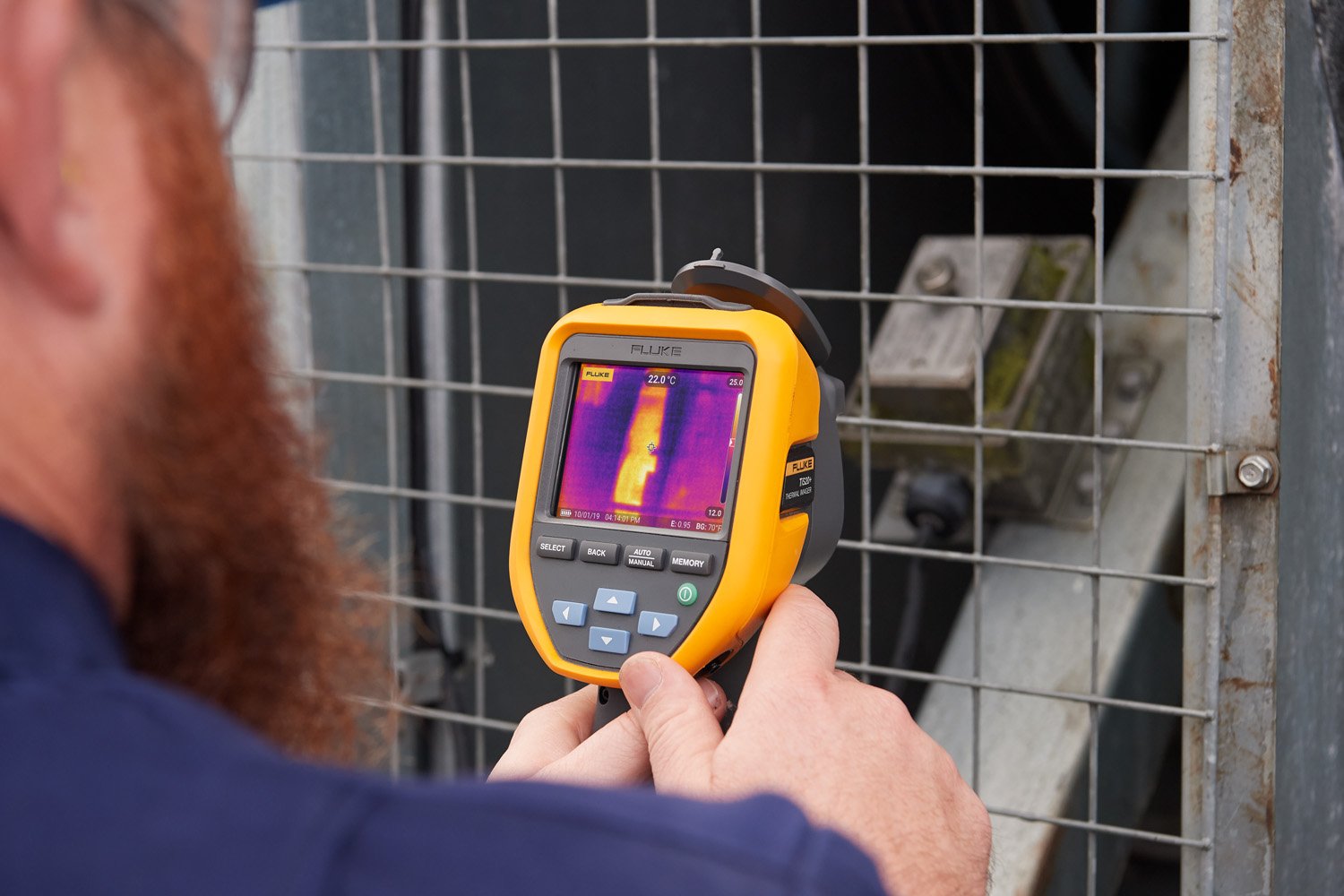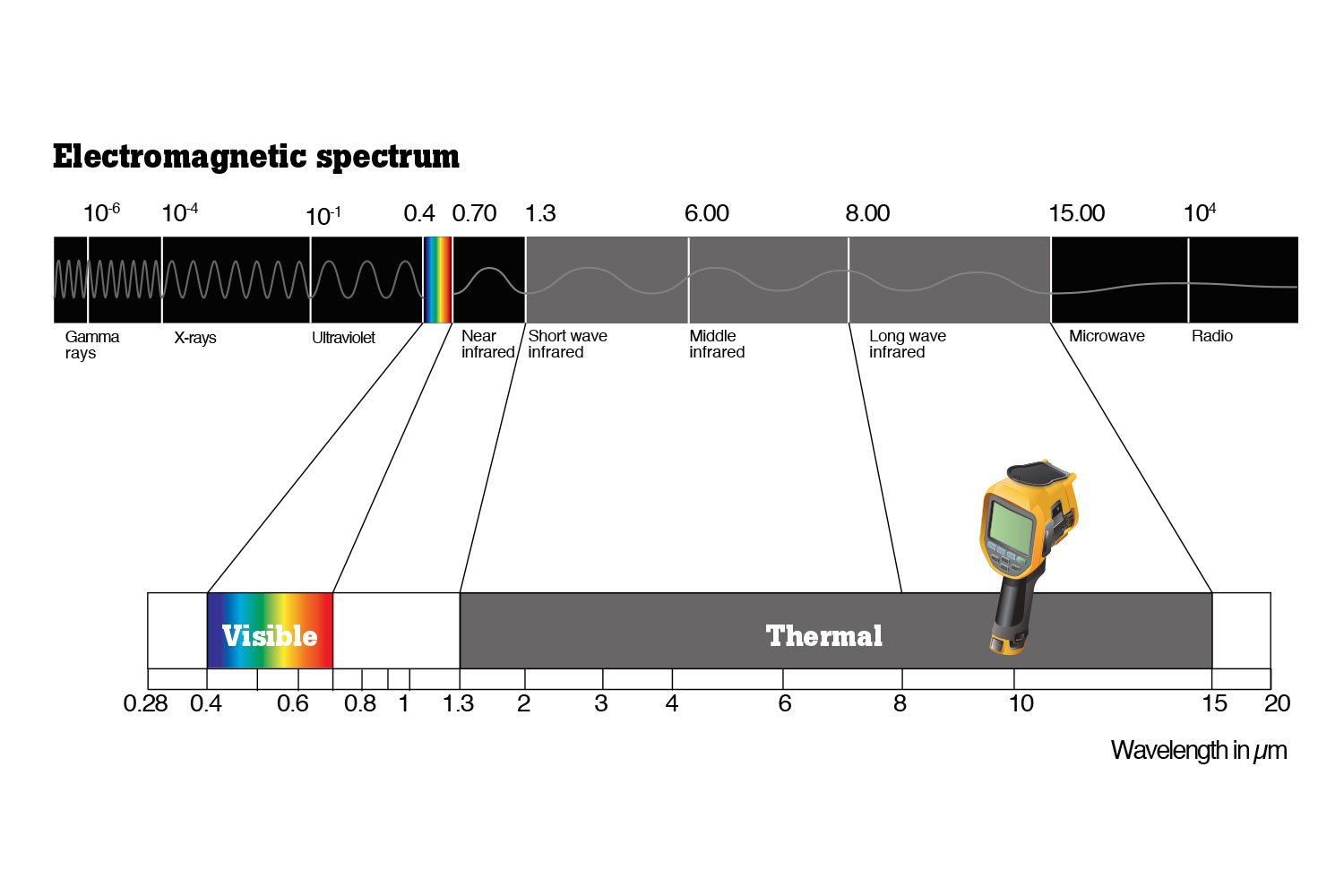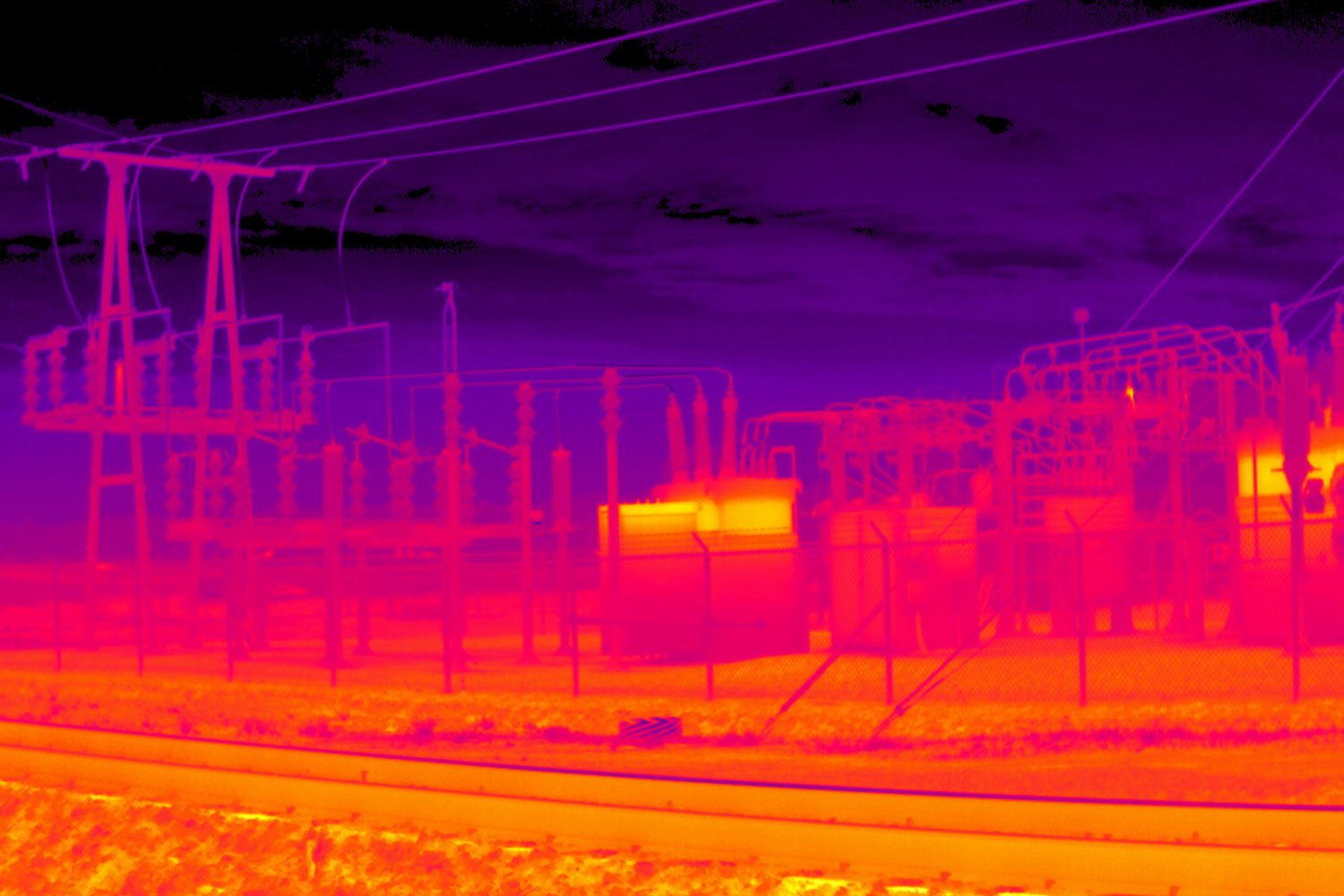Thermal cameras take infrared images. The term Infrared means “beyond red”. Thermography is defined as “temperature picture”. So, by definition, infrared thermography means a “beyond red temperature picture.”
 Viewing the infrared image captured on a Fluke TiS20+ Thermal Imaging Camera.
Viewing the infrared image captured on a Fluke TiS20+ Thermal Imaging Camera.
Both visible light and infrared is part of the electromagnetic spectrum. Infrared has a longer wavelength and lower frequency than visible light. Infrared thermography is the science of detecting infrared energy emitted from an object, converting it to an apparent temperature, and displaying the result as an infrared image that is captured by a thermal camera.
 Thermal cameras and the electromagnetic spectrum
Thermal cameras and the electromagnetic spectrum
How infrared images discover problems
Thermal Anomalies in equipment, are indicators of potential problems. Because this science can detect heat patterns in the infrared wave-length spectrum that are not visible to the naked eye, it can give you a big boost in identifying components that are going bad, before they fail.
Rather than providing a numerical test result as with various test meters, a thermal camera (also called a thermal imager) captures an image that you can enhance with different color palettes and highlighting tools to immediately root out a potential problem. Because you can capture infrared images without making direct contact with the equipment you can get a better picture (literally and figuratively) of the actual conditions when the equipment is under load.
 Infrared image of a utility substation that shows hot, warm, and cool spots.
Infrared image of a utility substation that shows hot, warm, and cool spots.
Most thermal cameras also capture “radiometric” data, which means that you get an apparent temperature for each pixel within the image. When you locate an anomaly, you can quickly drill down and see the apparent temperatures of the exact points in question and determine whether they’re within the normal range.
Infrared thermography can open your eyes to a new world of data that’s always been around you, but you’ve never been aware of because you couldn’t see it without a thermal camera.